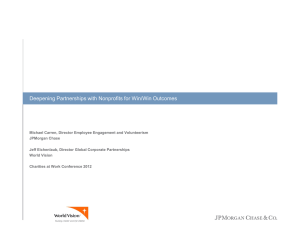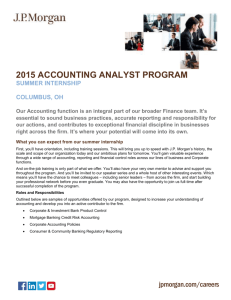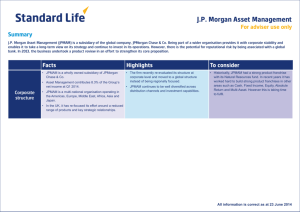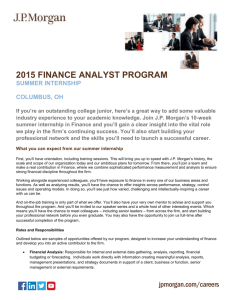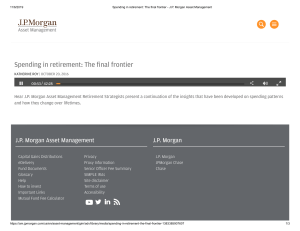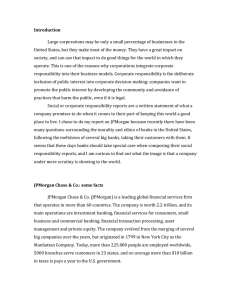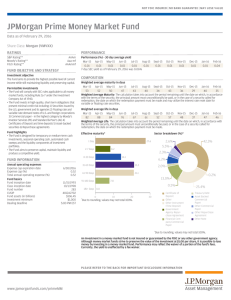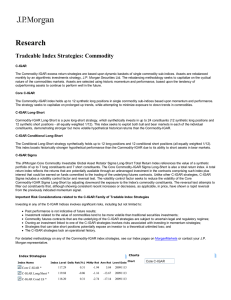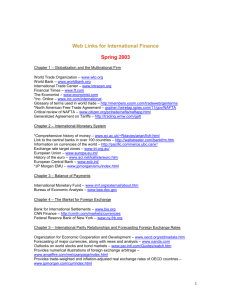Pitchbook US template
advertisement
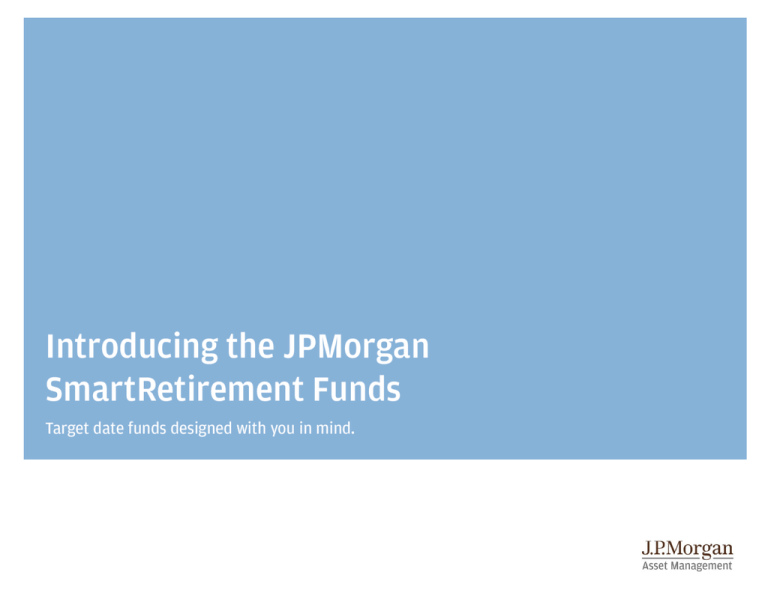
Let’s talk about you Let’s talk about you What is a target date fund? Starting out As you approach retirement At the target date What year do you plan to retire? A little simple math Choosing your JPMorgan SmartRetirement Fund *This assumes you plan to retire at age 65 JPMorgan SmartRetirement Funds What does well-diversified look like? What does professionally managed look like? *As of December 31, 2012 What does automatic look like? What does automatic look like? What does automatic look like? What does automatic look like? Always remember … Where do I begin? Fine print For more complete information or for a fund prospectus, please call 800-480-4111. Investors should carefully consider the investment objectives, risks, charges and expenses of the funds before investing. Please carefully read the prospectus, which contains this and other important information, before you invest or send money. Generally, the asset allocation of each target date fund will change on an annual basis with the asset allocation becoming more conservative as the fund nears the target retirement date. The target date is the approximate date when investors plan to start withdrawing their money. The principal value of the fund(s) is not guaranteed at any time, including at the time of target date and/or withdrawal. The gross expense ratio of the fund includes the estimated fees and expenses of the underlying funds. There may be additional fees associated with investing in a Fund of Funds strategy. Certain underlying Funds of the SmartRetirement Funds may have unique risks associated with investments in foreign/emerging market securities, and/or fixed income instruments. International investing involves increased risk and volatility due to currency exchange rate changes, political, social or economic instability, and accounting or other financial standards differences. Fixed income securities generally decline in price when interest rates rise. Real estate funds may be subject to a higher degree of market risk because of concentration in a specific industry, sector or geographical sector, including but not limited to, declines in the value of real estate, risk related to general and economic conditions, changes in the value of the underlying property owned by the trust and defaults by the borrower. The Fund may invest in futures contracts and other derivatives. This may make the Fund more volatile. There is no guarantee that companies that can issue dividends will declare, continue to pay, or increase dividends. Investment return and principal value of security investments will fluctuate. The value at the time of redemption may be more or less than original cost. Past performance is no guarantee of future results. Small- and mid-capitalization funds typically carry more risk than stock funds investing in well-established “bluechip” companies because smaller companies generally have a higher risk of failure. Historically, smaller companies’ stock has experienced a greater degree of market volatility than the average stock. Services, Inc. is a member of FINRA/SIPC. J.P. Morgan Asset Management is the marketing name for the investment management businesses of JPMorgan Chase & Co. and its affiliates worldwide. J.P. Morgan Funds are distributed by JPMorgan Distribution Services, Inc., which is an affiliate of JPMorgan Chase & Co. Affiliates of JPMorgan Chase & Co. receive fees for providing various services to the funds. JPMorgan Distribution Services, Inc. is a member of FINRA/SIPC. J.P. Morgan Asset Management is the marketing name for the investment management businesses of JPMorgan Chase & Co. and its affiliates worldwide.

